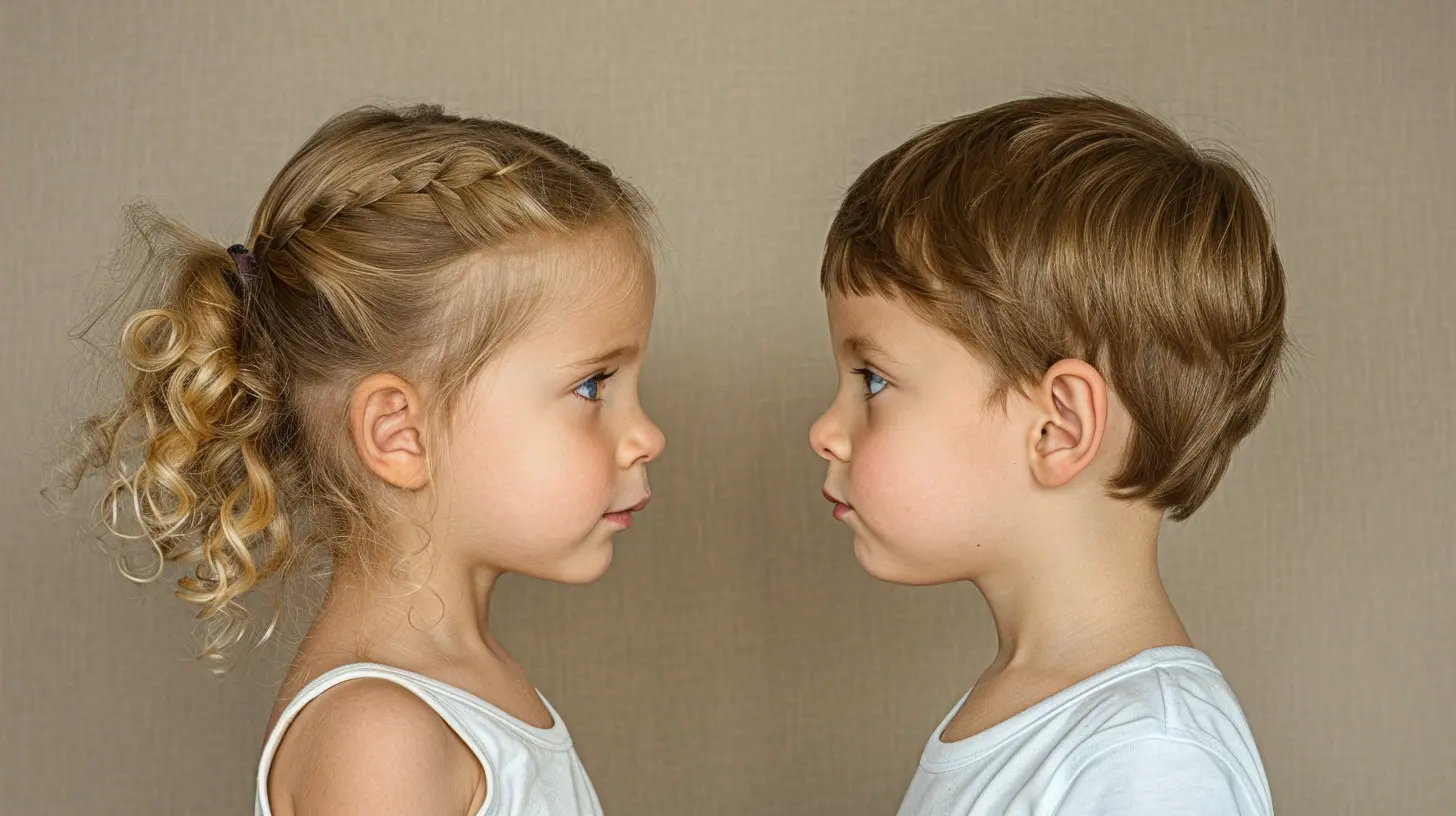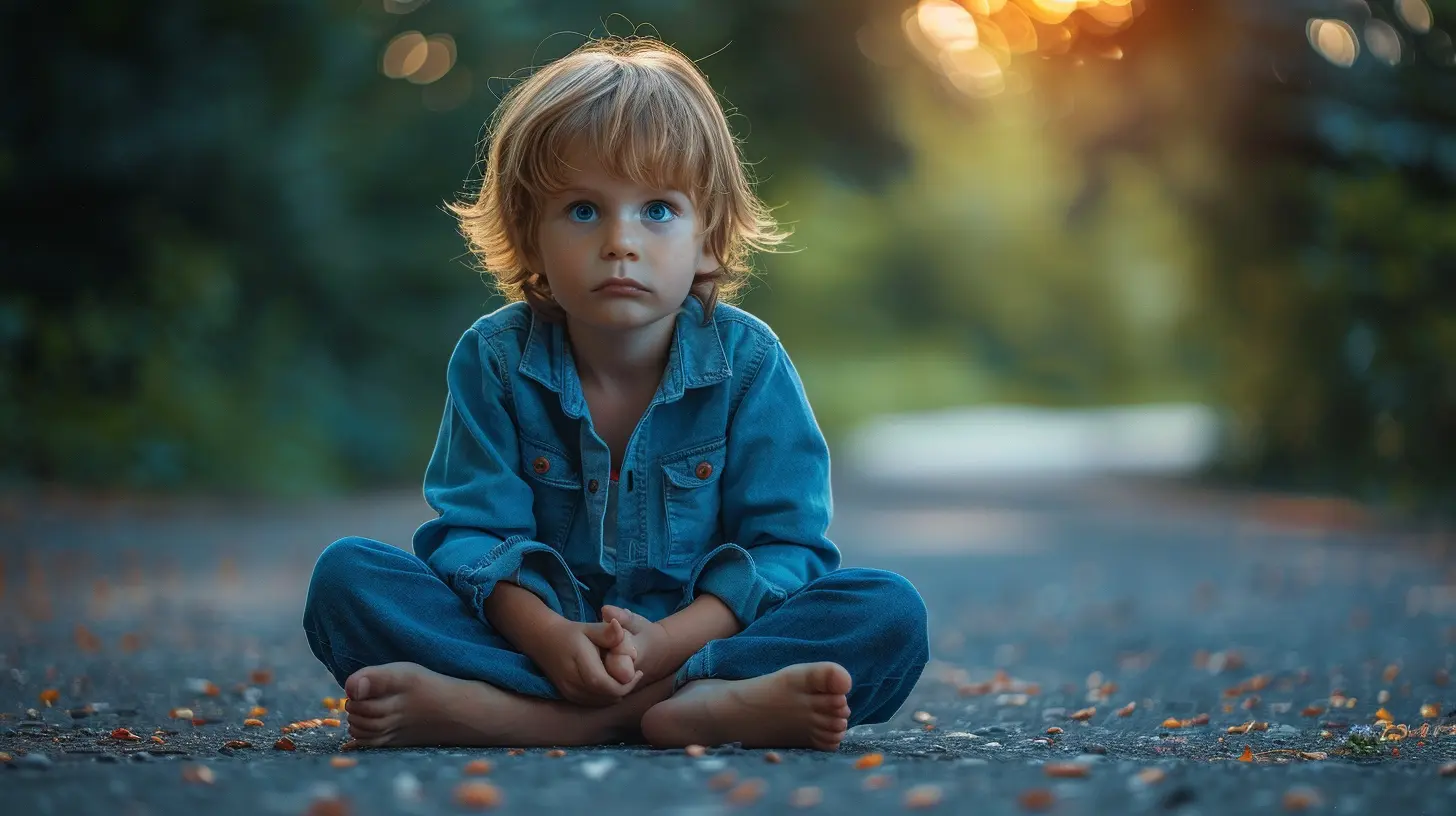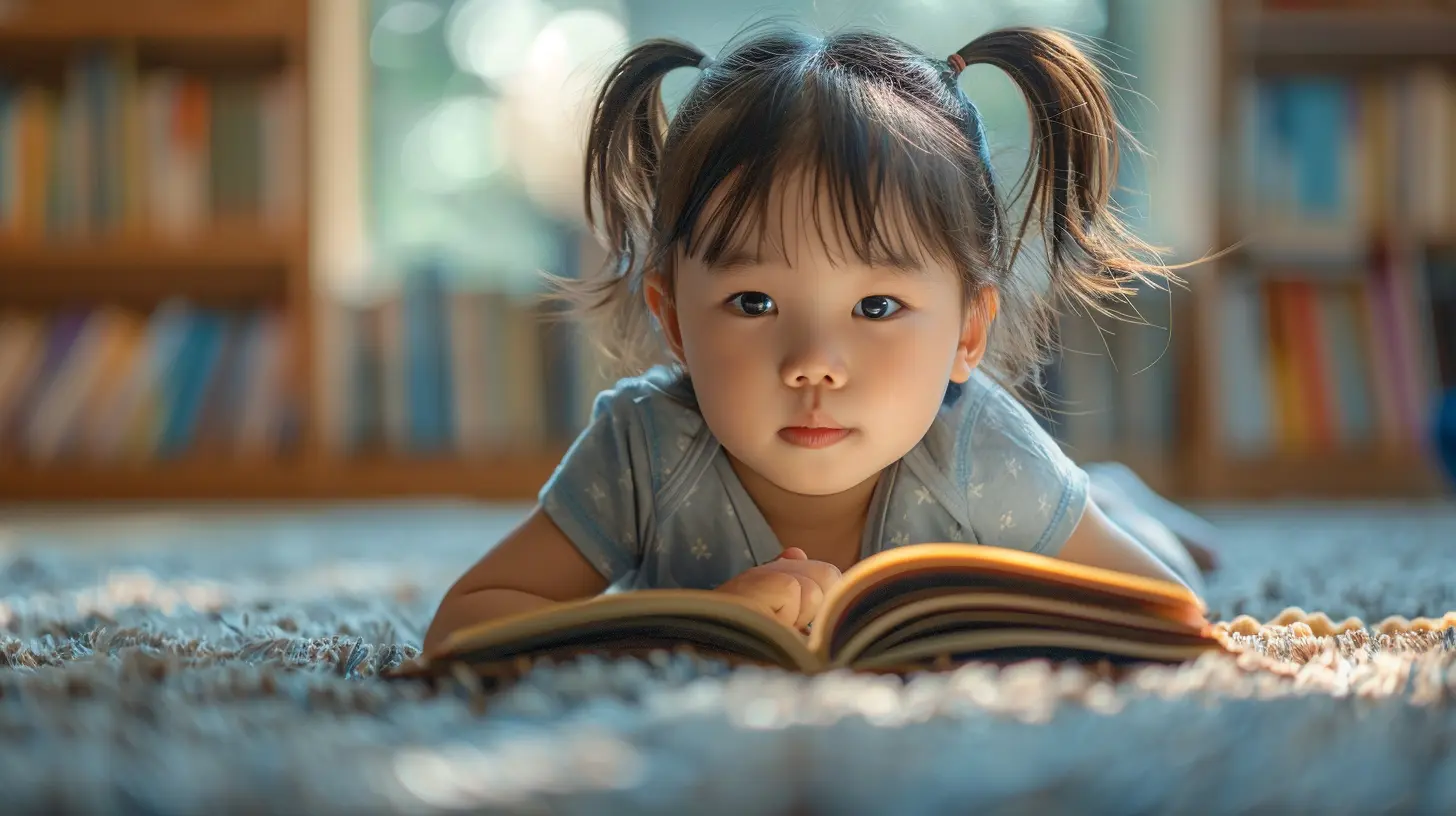Identifying Early Signs of Giftedness in Children
31 August 2025
Let’s be real—everyone thinks their child is special. And you know what? That’s absolutely true. Every kid brings something amazing to the table. But sometimes, you start noticing things about your little one that make you pause and go, “Wait a minute… is this normal?” Maybe they’re solving puzzles faster than anyone their age, reading books way beyond their grade level, or asking questions that leave even you stumped.
If that’s the case, you might be parenting a gifted child.
While it’s easy to brush off your kid’s quirks as just being “curious” or “ahead,” identifying early signs of giftedness can help you nurture their potential in the right way. And no—giftedness isn’t just about being good at school. It’s much deeper than that.
In this post, we’re breaking down the clear, not-so-obvious, and even surprising signs that could indicate your child is gifted. So grab your coffee (or tea—no judgment here), and let’s dive into it!
What Does Giftedness Really Mean?
Before jumping into signs, let’s clarify the term: giftedness isn’t just about high IQ or good grades. It’s a complex mix of cognitive, emotional, and creative traits that show up in unique ways—especially early on.Gifted kids tend to process information differently. Their brains are wired to take in more, question more, and see connections that others might miss. That’s why they sometimes feel like “little adults” trapped in tiny bodies.
But get this—not all gifted kids are straight-A students. Some struggle in traditional school environments because the pace is too slow or the content doesn’t interest them. So it’s important not to tie “gifted” with “high achiever.” They’re not always the same thing.
Why Early Identification Matters
Think of it this way: if your child had a natural ability in music, and you never gave them a piano or a chance to explore music, that talent could fade away. The same goes for intellectual and emotional giftedness.Early identification helps you:
- Tailor your parenting approach
- Seek appropriate schooling or enrichment programs
- Understand their emotional needs
- Prevent underachievement or boredom in school
Simply put, the earlier you identify giftedness, the better prepared you are to support your child’s unique journey.
1. Early and Advanced Language Development
One of the biggest red flags (in a good way!) is how early and how well a child starts talking.Does your toddler use complex sentences or words even you don’t use regularly? Have they been asking "Why?" from the moment they could form a sentence? Gifted kids often have a rich vocabulary and start communicating in full sentences much earlier than their peers.
You might even catch them mimicking adult conversations or asking about abstract ideas like time, space, or emotions.
Tip: Keep a notebook of the quirky or profound things your child says—you'll thank yourself later.
2. Unquenchable Curiosity
Gifted children are naturally inquisitive. They don’t just accept answers; they want to dig deeper. “Why is the sky blue?” turns into “What makes light bend?” followed by “How do rainbows work?”And let’s be honest—sometimes their questions might wear you out (we've all been there), but this endless curiosity is a strong indicator of an advanced intellectual capacity.
They’re not just asking to ask—they’re trying to understand the world.
3. Exceptional Memory
You tell them something once, and boom—they never forget it. Gifted kids often have a memory like a steel trap. They’ll remember a fact they heard last year or recall details from a story they heard once.This isn’t just a neat trick—it’s usually a sign their brain is processing and storing information more efficiently than others their age.
Heads up: This also means they might remember things you wish they’d forget—like that one time you accidentally swore in traffic.
4. Rapid Learning
Ever notice your child picks up new skills faster than other kids? Maybe they learned to read independently at three, or started solving puzzles meant for ten-year-olds.Gifted children tend to absorb information quickly and with little need for repetition. It’s like their brains are on fast-forward when it comes to learning.
But keep in mind—this can also make traditional classrooms frustratingly slow for them.
5. Focused Intensity
When a gifted kid is interested in something, they go all in. Whether it's dinosaurs, space, or building elaborate LEGO cities, they can stay hyper-focused for hours on end.We're talking laser focus.
This is called a "passion project" phase, and it’s a strong sign of giftedness. They’re not just playing—they’re researching, analyzing, experimenting.
Pro Tip: Let them dive deep. Support their current obsession—it’s laying the groundwork for future passions.
6. Heightened Sensitivity
Gifted kids are often emotionally intense. That means deeper empathy, stronger reactions, and a heightened sense of justice or fairness. They might cry from a sad movie, worry about global issues, or get upset when others are treated unfairly.This emotional depth is part of their giftedness, even though it might feel overwhelming sometimes (for both of you).
It’s like their brain and heart are operating several years ahead of their age.
7. Unique Sense of Humor
Ever hear your child crack a joke and think, “Where did that come from?” Gifted kids often have advanced, quirky, or witty humor. They might understand puns, sarcasm, or irony way earlier than most kids.Their jokes may even fly over the heads of their peers—another clue they’re thinking on a whole different wavelength.
8. Preference for Older Company
Gifted children often feel more comfortable around older kids or adults. Why? Because peers their own age might not “get” them.If your child constantly wants to hang out with older siblings, adults, or even teachers, it’s a sign they’re seeking mental stimulation on their level.
This doesn’t mean they don’t like other kids—it just means they crave deeper conversations and interests.
9. Creativity and Imagination
Gifted kids are dreamers and storytellers. If your little one is always coming up with intricate stories, inventing new games, or pretending to be someone else, you’re looking at a mind that’s wired for creativity.Their imaginary worlds can be so rich and detailed that they feel more real than reality.
Encourage this! Creative thinking is a huge part of problem-solving and innovation later in life.
10. Perfectionism and Self-Criticism
This one’s tricky. Many gifted kids set impossibly high standards for themselves. If they don’t get something right the first time, they melt down or refuse to try again. They’re their own worst critics.This perfectionism isn’t about pleasing others—it’s internal. They know what they’re capable of and get frustrated when they fall short.
Helping them manage these expectations early on is crucial.
What To Do If You Suspect Your Child Is Gifted
So you’ve nodded “yes” to several signs? First off—congrats. Raising a gifted child is an incredible (and sometimes exhausting!) journey. But don’t worry, you don’t need to have all the answers right away.Here’s what you can do next:
1. Observe and Document
Keep a journal of behaviors, interests, and milestones. Patterns often emerge over time that can help educators and specialists understand your child better.2. Talk to Their Teacher
Share your observations with your child's teacher. Ask about enrichment opportunities or advanced curriculum options.3. Consider Testing
Psychologists or gifted specialists can administer cognitive and achievement tests to help provide a clearer picture. Testing isn’t the only way—but it’s helpful.4. Seek Like-Minded Community
Local gifted associations, online forums, or Facebook groups can be goldmines of support, advice, and resources.5. Nurture Their Passions
Expose them to different hobbies, classes, and experiences. Let them explore until they find what lights them up.The Bottom Line
Identifying early signs of giftedness in children isn’t about putting a label on them—it’s about understanding how their minds work so you can support them in becoming the best version of themselves.Gifted kids don’t need to be pushed harder. They need to be understood, supported, and celebrated for who they are.
And remember—your parenting intuition is powerful. If you feel something is different about your child (in the best way), trust that feeling. You know your kid better than anyone else.
Now go give your little genius a hug.
all images in this post were generated using AI tools
Category:
Child DevelopmentAuthor:

Maya Underwood
Discussion
rate this article
1 comments
Sawyer Torres
What a fantastic article! Recognizing giftedness in our little ones can really help nurture their potential. I love the tips provided, especially on observing curiosity and problem-solving skills. Every child is unique, and understanding these signs can make all the difference in supporting their amazing gifts! Thanks for sharing!
September 16, 2025 at 4:27 AM

Maya Underwood
Thank you for your kind words! I'm glad you found the tips helpful for recognizing and nurturing children's unique gifts. Your support means a lot!


